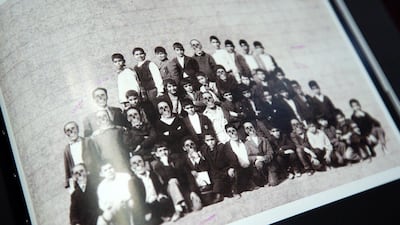When considering the ample soft power resources the US has on the global stage, it is hard not to think of the big names – Hollywood, McDonald's and Facebook – not to mention pop stars such as Taylor Swift.
But the actions of successive US administrations – what some would characterise as excessive use of hard power – left a bitter taste for many.
In the Middle East, take the decision by the Bush administration in 2003 to invade Iraq as a prime example.
The aftermath of this, an empowered Iran and the embers of the war on ISIS, was something John Rakolta Jr had to consider when he assumed his post as the US Ambassador to the UAE in September 2019.
He saw himself as a "change agent" during his 15-month tenure with the outgoing Trump administration.
"We have many Emiratis and Arab friends coming to the house too, not just Americans. We wanted to show the Emiratis the respect we have for Middle East culture, we wanted to engage in a lively conversation on what this meant to you. We wanted to start deep conversations about what causes all of this," said Mr Rakolta, speaking exclusively to The National at his residence in Abu Dhabi.
To understand the Middle East from within, Mr Rakolta and his wife Terry filled the walls of their new home with something that captures the heartbeat of the region. They carefully selected and bought paintings and sculptures that show the pulse of the Middle East, from Baghdad to Beirut.
The Rakoltas learnt about the stories behind every piece they purchased from Arab artists, who wanted to make a powerful statement themselves, including Iraqi painter and sculptor Serwan Baran and Lebanese artist Ayman Baalbaki.
"It's a collection of pain, displacement, refugee camps, disruption, victims or war. The original theme was 'fighters, oppressors, victims' but we decided to change it into 'transcending conflict' after the signing of the Abraham Accords here in Abu Dhabi, because we became more optimistic," Mrs Rakolta said, referring to the agreement the UAE and Bahrain signed last year to establish diplomatic ties with Israel.
“This collection has taught us more empathy. Every day you hear in the news about people bombed in this or that country. All numbers to you. You become so desensitised.
"When you see these photos, this is their reality, we don't understand that in the US. You have to really understand the agony, pain and history of the people of this region. Art and culture are soft power, which are energising, [and] create prosperity, peace and opportunity."
In the past decade the Middle East has been a tinderbox of conflicts, proxy wars and uprisings.
But even as major combat operations by US forces have come to an end, the country displayed its hard power on different occasions through air raids, boots on the ground, special operations and giant military bases, with the aim of containing Iran and protecting US national security.
Over the past few years, Washington led a coalition in the war against ISIS, carrying out special operations that killed the terrorist group's leader Abu Bakr Al Baghdadi in Syria.
In January last year, a US drone strike killed Gen Qassem Suleimani, the chief architect of Iran's proxy forces in the region, on a road near Baghdad airport.
The extent that these actions were co-ordinated with allies has been another source of controversy, but the need to act multilaterally remains, despite a vast military budget.
Last month, US Congress overwhelmingly passed a colossal military budget bill of $740.5 billion, $100bn more than when Donald Trump took office. US media described it as the biggest budget since the Second World War, adjusting for inflation.

Critics say the US made some strategic mistakes in the region, chiefly the aftermath of the US-led invasion that toppledSaddam Hussein in Iraq. The operation burnt through cash and made US hard power unpopular in the eyes of many people in the region, according to several polls.
Mr Rakolta, a businessman-turned-diplomat, believes that hard power is expensive and could be counterproductive.
“I don’t believe in the concept that you can convert by the sword, whether it’s economic or military. Converting by the sword just causes divisions that last for generations, if not eternity. You need to solve this by dialogue and understanding," he said.
"Hard power is expensive, doesn't necessarily makes friends and it's destructive in its final form."
His opinion was echoed by Mrs Rakolta, who firmly believes that soft power makes people more “receptive and listen to us".
“With hard power, everybody shuts down and runs for cover. Look at these paintings and the symbolism of them. This cultural exchange. Soft power creates a lasting bond between people. The UAE has become a beacon of hope for the whole region, in fact. This is the model,” she said.
Asked how much they paid for the artworks, Mr Rakolta was ready with a laugh and a diplomatic answer.
"The amount of money that we spent isn't important. What's important is the effect it has on the human heart, human spirit and human mind. This value isn't calculable," he said.













